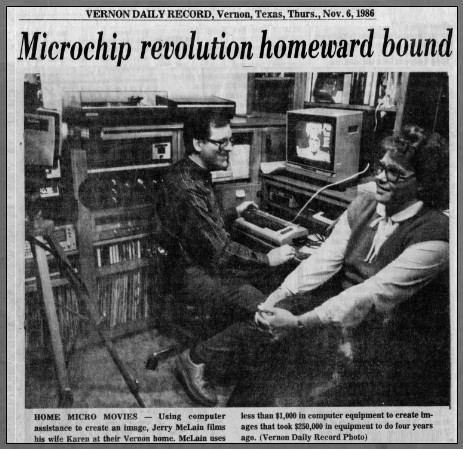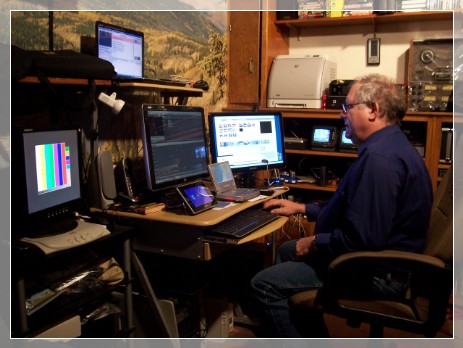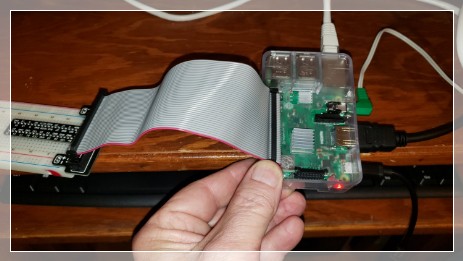Computers
My Life and History
I encountered my first computer as a senior in college, where I dated a girl who was majoring in computer science. She programmed in FORTRAN on punch cards and I had little interest in it, especially as I watched her frustration. Later, in graduate school, I did some work with punch cards for communication research data entry. Again, with little interest. There were some CRT terminals in the building but I didn't even see how they could be useful.
Later, I bought a programmable calculator for my fiancee' and ended up "borrowing" it to use in a graduate statistics class. Programming it came extremely easy for me and I enjoyed playing with it, writing little programs to perform math functions, but I had no thoughts of doing anything more--or even having a larger computer.
It wasn't until around 1984 that the hospital where I worked began to take steps toward automation. One of the first personal computers purchased by the hospital was given to our department. It was an IBM PC-XT, with 64 kilobytes of memory and a 10 megabyte hard drive. No one knew what to do with it and the job fell to me because as my supervisor said, "It has a screen on it and you have a degree in radio and television. Make it do something."
From that, I joined with another person at the hospital and we self-taught ourselves how to partition the hard drive, set up applications and program useful applications. I saw our secretary's training record maintenance workload decrease from a two week job to only requiring two hours, simply based on the data access program I had written.
I purchased my first computer in 1986, a Commodore 64 which, while slower than the PC-XT, had greater graphics capability and was much less expensive. From it, I learned to program in BASIC, and discovered the world of computer gaming. My typing skills improved dramatically, as did my ablilty to create graphics.
A couple of years later, I obtained my first IBM compatible computer. It had 2 megabytes of memory and an 80 megabyte hard drive. I continued to upgrade it with memory and drive space and buy new, faster computers as I expanded into programming in QUICKBASIC and C. As the Windows OS became prevalent, I moved into visual programming languages, including Visual BASIC and DELPHI. I also began to explore multimedia creation. As PC's became faster, I was able to switch from analog video editing to computer based editing as well. I worried that I wouldn't be able to adapt to non-linear editing, but the level of control was amazing and I wondered how I had done "old school" editing all those years.
The Internet came very naturally to me, because of my experience in using a reference library. The principles of searching for and collecting information served me well. In addition, the first steps I took in HTML programming "old school" have been made much easier by dedicated websites, social media apps and web creation tools.
In the meantime, at work, found a myriad of uses for computers, taught computer basics and ultimately became Chief Information Officer. The hospital was consolidated and became the largest state hospital in Texas, so I had responsibility for over 500 computers, video conferencing systems and T-3 data connections, as well as fax, telephone and video surveillance systems.
After I retired, I continued to work on computers, doing everything from editing video and graphics, designing games and applications and even making cartoons for the family. I became interested in the Raspberry Pi. It is an inexpensive credit card size computer that runs a version of the LINUX operating system and must be programmed in PYTHON. Both are new worlds for me to learn. One of the features of the Pi is a GPIO (General Purpose Input-Output) port. Combined with software programs, the GPIO port can be programmed to interact with external devices and sensors. Experimenting with it combines my interest in electronics with computers.
Software has always been expensive, but, over the years, freeware and public domain programs have been written that rival commercial applications. I find Libre Office to be a good substitute for Microsoft Office, Paint.Net to be a capable graphics program and Audacity to be a very useful audio editor. There are lots of others and, if you are interested in some particular use for a computer, please let me know and I will be happy to research and offer suggestions for a free alternative.
I've been told that my story is something that no present day person with an IT degree can even imagine. In fact, when I look back on my career, I can't imagine how I could have a career in a field that didn't even exist when I finished college.

A story in our local newspaper regarding my Commodore 64, 1986

From a Commodore 64 to this....

Raspberry Pi - A Small Computer

